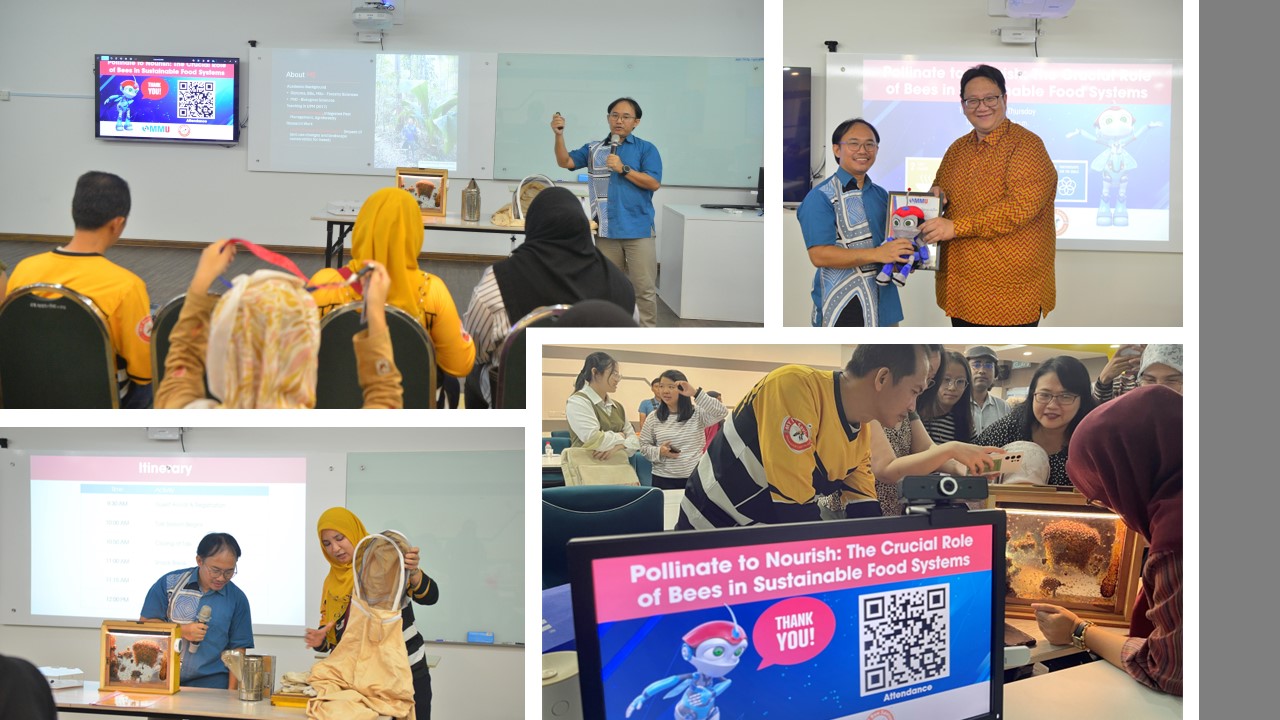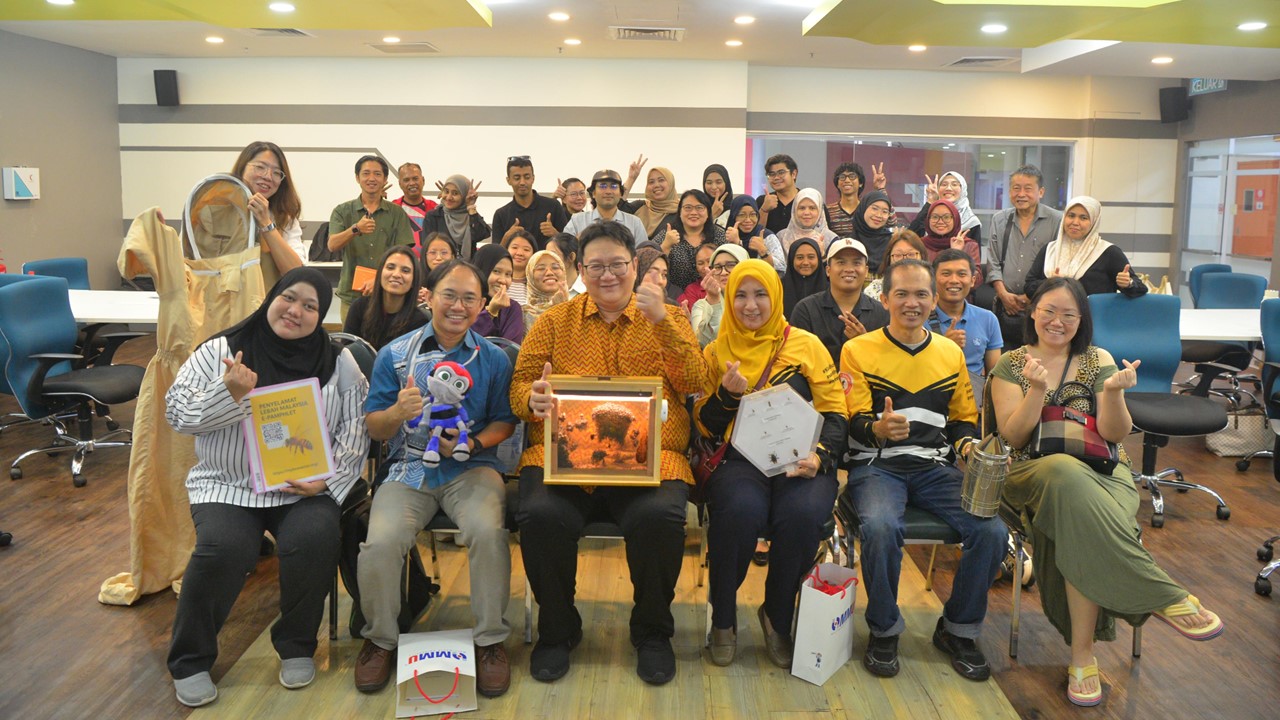MMU took a step forward in promoting sustainability awareness by hosting a talk titled “Pollinate to Nourish: The Crucial Role of Bees in Sustainable Food Systems”, held at the Cyberjaya campus on 17 July 2025. Organised by the MMU Sustainability Development Committee, the session featured Dr. Norhisham bin Ahmad Razi, Senior Lecturer at Universiti Putra Malaysia (UPM), alongside Dr. Wan Nur Asiah binti Wan Mohd Adnan and her team from the My Bee Savior Association. The association is a non-profit organisation dedicated to rescuing, relocating, and conserving bees, while also raising public awareness about their ecological importance.
Adding a unique MMU touch, the university’s very own blue e-bee mascot symbolically echoed the message of protecting pollinators for a thriving, tech-forward, and sustainable future. During the session, Dr. Norhisham elaborated on the critical role bees play in ensuring food security and maintaining ecological balance. Complementing his insights, Dr. Asiah provided a practical demonstration on the safe and responsible relocation of bees in response to public complaints. The session concluded with a campus walkabout, where speakers and guests shared insightful ideas on suitable plant species and landscaping strategies to create a greener, pollinator-friendly MMU environment.
In conclusion, the talk highlighted how pollinators support global agriculture, stressed the importance of protecting natural habitats for bees and other wildlife, and emphasised that biodiversity is essential for a sustainable future. The two-hour session attracted staff and students across both MMU campuses, and members of the public, sparking meaningful conversations on ecological responsibility and biodiversity.
With the aim of deepening awareness on the vital connection between pollinators and sustainable agriculture, this session underscored the vital role of bees in global food security, ecosystem health, and sustainable agriculture — aligning with UN Sustainable Development Goals (SDGs) 2 (Zero Hunger), 12 (Responsible Consumption and Production), 15 (Life on Land), and 17 (Partnerships for the Goals). An interactive Q&A session followed the presentations, fostering deeper engagement and curiosity among the attendees. This initiative reflects MMU’s ongoing efforts to embed sustainability into its educational culture and to empower its community with knowledge that supports global environmental goals.


